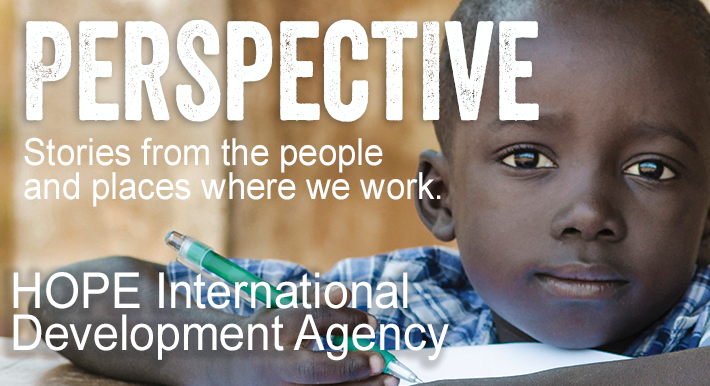In a recent post we highlighted the devastating consequences of hunger and what’s being done to ensure the world’s poorest families have enough to eat.
In this, the first of two posts, we explore how hunger affects families in one of the most rugged places on earth - Afghanistan.
Hunger is a major problem for families living in the rugged region of Afghanistan’s Kunduz province. Families go hungry regularly and suffer from chronic undernourishment. In fact, 59 percent of children under the age of five are well below the norm in terms of height and weight.
The most striking physical feature of Kunduz, particularly, the village of Jeloucha where HOPE International Development Agency has been helping families for nearly a decade, is what you don’t see when you cast your gaze to the river that borders one side of the village and the mountains that rise up behind the village.
There are no trees, no grasslands, and no vegetation, not even at the foot of the steep, barren mountains that tower over the village. Deforested decades ago during times of conflict, nothing has grown back.
The only way in and out of the Jeloucha is via roads best described as goat trails. These trails connect the people of the village to other villages and markets for buying or selling a bit of wheat, a few melons, or perhaps a small cow. Wintertime is especially challenging and bleak.
The most striking thing about the people Jeloucha is what decades of adversity has done to them. There’s been little opportunity to replant forests or rebuild crumbling infrastructure. Put differently, there’s been no incentive to do so when the only life they have known has been chronically unstable.
Living in a place like Canada, surrounded by abundance, especially during the Christmas season, it’s nearly impossible to imagine what it must be like to live in a village like Jeloucha.
Over the years, families in Jeloucha have sold nearly everything they own in an effort to survive and many are simply out of options. Meager harvests have made the situation even worse, especially in the winter, when it’s not uncommon for families to eat only one small meal per day because they’re dangerously low on food.
HOPE International Development Agency is working to overcome chronic hunger by providing food in lean times and helping rebuild grain stocks and establish food grain banks in an effort to help families grow more food throughout the year. As a result, families who were once downtrodden and overwhelmed by the constant struggle to survive are now finding hope.
Next week we will share more about what hope looks like for families who are doing everything they can order to ensure that they have enough food to eat throughout the year.
skip to main |
skip to sidebar
Visit HOPE International Development Agency today and learn more about our focus on clean water, food security and livelihoods that unlock opportunities for families experiencing extreme poverty.


